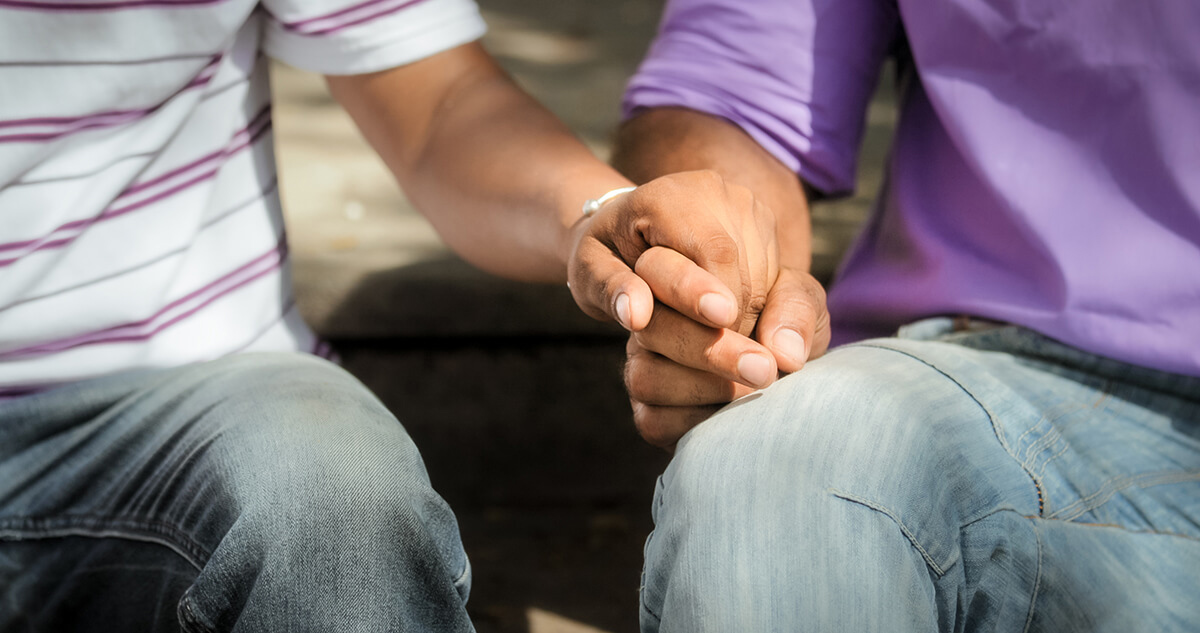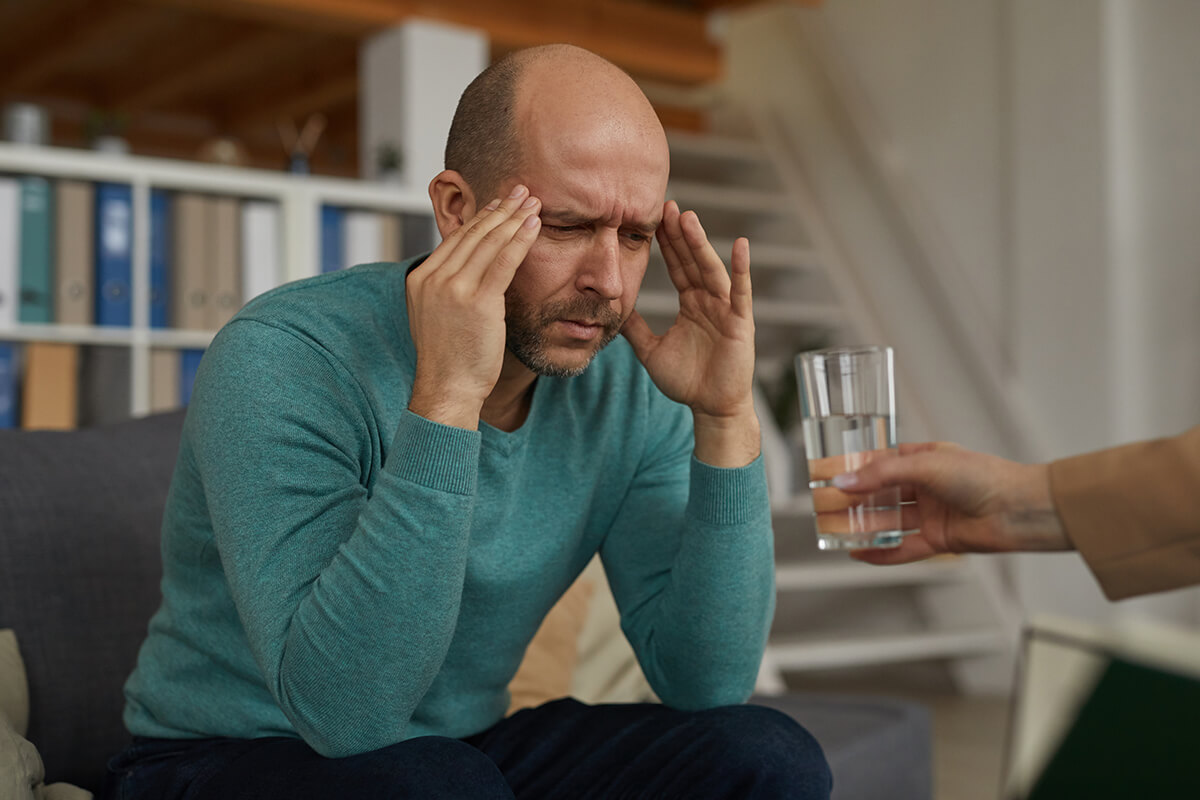 17 Mar 2021
17 Mar 2021
BY: admin
LGBTQ
Why Is Depression More Prevalent in the LGBTQ Community?
Why Is Depression More Prevalent in the LGBTQ Community?
Mental illness is more common in the LGBTQ communitites than any straight, cis-gender group. Approximately 4.5 precent of the United States population identify as gay, lesbian or bisexual, and over 39 percent have expeirneced a mental illness within the last year. In 2015, 60 percent of LGBTQ youth reported being so sad that they were no longer partaking in activities they once enjoyed. People who identify as transgender are also more likely to experience depression and attempt suicide. Why are people in the LGBTQ community experiencing depression at such a greater rate than the rest of the population?
There is no single answer, and we would never attempt to identify the true reason for an individual’s unique experience with mental health. However, there are some common experiences and themes in the lives of people who identify as LGBTQ that can lead to the development of depression. Understanding these causes can help you better understand and support a loved one or even help yourself.
Non-Supportive Family Members
LGBTQ youth who do not have family support are much more likely to experience depression, self-harm and attempt suicide; there is also a pandemic of youths being kicked out of their homes and thrust into homelessness because their parents or guardians do not accept them for who they are.
Even if someone can keep their housing, living under the same roof as people who are openly homophobic, transphobic, and/or abusive poses life-threatening risks to someone’s mental health. Depression and its accompanying feelings of hopelessness, shame, and worthlessness, can stem from a non-supportive environment.
Lack of Understanding and LGBTQ Resources
Despite the fact people are more open about mental health today, there is still limited knowledge surrounding the unique experiences, challenges, and emotions that influence an LGBTQ person’s mental health. Even doctors and therapists can be ignorant to the influences that cause their patients to experience depression. Failing to recognize the added challenges of being LGBTQ can worsen a person’s feelings of isolation.
Minority Stress
Although the community is millions strong, almost everyone who identifes as gay, lesbian, bisexual, trans, or queer has felt alone and outcasted at some point. LGBTQ people deal with constant stress and anxiety about their own safety, their future and their personal rights. It’s not something easy for a non-LGBTQ person to understand. It is exhausting trying to explain it, so most people stay quiet and suffer in silence.
People in the LGBTQ may also experience pressure as a minority to be an advocate for their group; however, taking on the role of educator is draining and can ultimately create more stress and pressure that negatively affects your mental health.
Colorado LGBTQ Counseling & Therapy
Our therapists offer care to LGBTQ teens and adults throughout Denver. We don’t believe that there is anything you need to change about yourself, only things you may need to overcome to live more authentically. Whether you feel trapped, alone or afraid, we are here to listen and help. Please contact us today to learn more and request an appointment at your earliest convenience.
 25 Feb 2021
25 Feb 2021
BY: admin
LGBTQ
The LGBTQ Community and Anxiety and Depression
The LGBTQ Community and Anxiety and Depression
Mental health is different for everyone, but there are particularly unique experiences in the LGBTQ community that position its members to experience greater levels of depression and anxiety. According to the Anxiety and Depression Association of America, LGBTQ depression and anxiety is 1.5 to 2.5 percent more prevalent than the same disorders among the heterosexual, gender-conforming population.
Many people who aren’t part of the LGBTQ community do not fully understand the experiences and circumstances that place individuals at a greater risk of mental illness. Stigma and fear of rejection also cause many “out members” to mask the depth of their feelings and mental health symptoms. In order to create a more inclusive society rooted in understanding, Caring Heart Counseling wishes to help communities, friends and family members understand the unique mental health experiences and needs of LGBTQ people.
Social Conditioning and Depression
From a very early age, children are exposed to both subvert and overt messages that allow them to build concepts of how a man or woman should be. They learn in movies, books and even through their own eye witnesses what love “should” look like. These mental concepts are called schema, and they form the framework of how a person goes on to interpret themselves and others.
Unfortunately, the narrative surrounding LGBTQ people has been grossly stereotyped. The gay man has always been ultra-feminine and sassy, a caricature that people come to expect from someone who comes out as gay. Transgender people are expected to “pass” fully and meet a certain set of physical criteria before others accept their identity, as if they are only okay with someone being trans if they look like a cisgender male or female.
A person who finds that their same-sex attraction or gender dysphoria do not align with their society’s expectations is more likely to experience feelings of inferiority, rejection and isolation that lead to clinical depression.
Living With Anxiety as an LGBTQ Person
The same messages that someone internalizes as a child can become their source of anxiety later in life. The fear that they are not good enough, that they’re “different” and flawed cause many LGBTQ people to develop general and social anxiety disorders. Rejection, discrimination and prejudices from communities can also lead to a threat response that causes LGBTQ people to fear everyday situations and interactions with other people.
A person who lives as LGBTQ might place extreme burdens on themselves to meet other people’s expectations. They may feel like they have to “prove” their good enough to be loved and accepted as if their sexuality or gender identity is a mark against them. Many people might listen to these concerns, but they aren’t often qualified or educated enough on the LGBTQ experience to provide the level of support someone needs to heal.
How Therapy Can Help
Therapy is one way to overcome depression, anxiety and other mental illnesses within the framework of being LGBTQ. At Caring Heart Counseling, we do not view your sexuality or gender identity as being a cause of any mental health symptoms. Your identity is not the problem, but it can be influencing your perception, impacting your relationships and negatively impacting how you see yourself.
An accepting, educated therapist can provide the compassionate support and understanding you need to benefit from therapy. If you would like to learn more, please contact us anytime or request an appointment.

